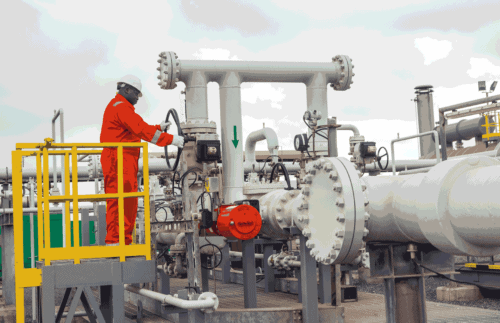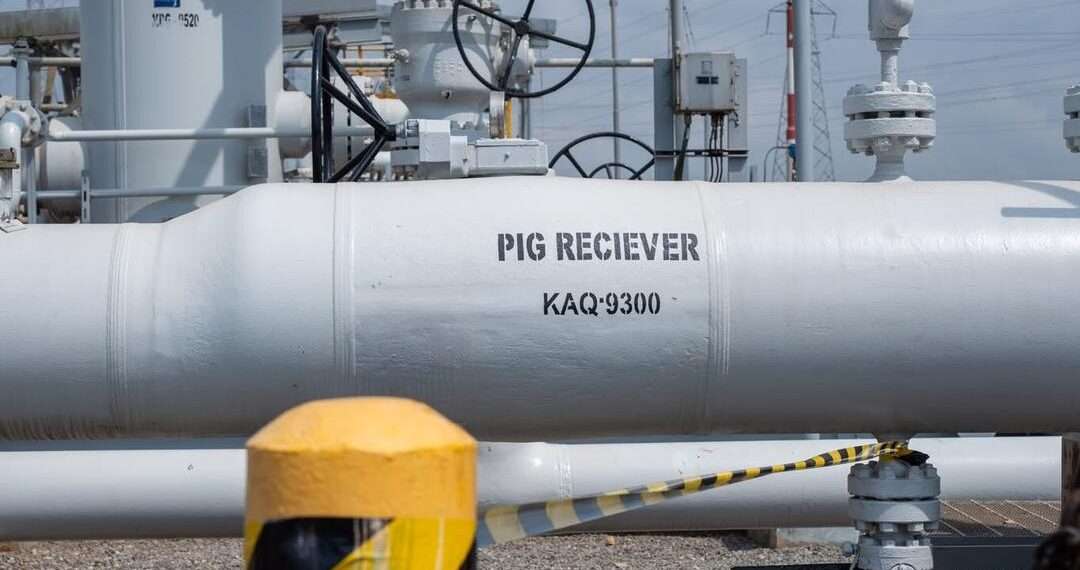The West African Gas Pipeline Company Limited (WAPCo) is facing persistent payment challenges from its member states, leading to significant disruptions in the regional gas supply and raising serious concerns over energy security across West Africa.
With critical disruptions already impacting countries such as Ghana, Togo, and Benin, WAPCo is calling for stronger financial collaboration and coordinated efforts among regional stakeholders to address these challenges.
Michelle Burkett, Managing Director of WAPCo, recently noted that persistent financial shortfalls are hampering gas deliveries.
“While we have seen vast improvement in the gas deliveries from Nigeria, gaps still remain to meet the demand in the region.
“We appeal for coordinated efforts to secure a minimum sustained base load and strengthen financial stability through collaboration.”
Michelle Burkett, Managing Director of WAPCo
A major point of concern for WAPCo has been delayed payments by national energy entities. Hon. John Jinapor, Minister for Energy and Green Transition, recently revealed that the West African Gas Pipeline Company (WAPCo) has cut its gas supply to Ghana to 60 million standard cubic feet per day (mmscfd) as a result of an outstanding debt of $20 million.

In July 2023, the company suspended gas transportation services to the Ghana National Petroleum Corporation (GNPC) due to an outstanding debt of over $13 million.
Although partial payments were later made, the balance remained unresolved, prompting a halt to gas supply on key transportation routes.
This included the suspension of a vital 60,000 MMBtu/day firm transportation service between Takoradi and Tema, which disrupted industrial power generation in Ghana and created ripple effects in the broader power grid.
“When payments are delayed or not made at all, it disrupts the entire ecosystem—from upstream gas producers to downstream power distributors.
“This has a knock-on effect on electricity reliability and economic productivity.”
Michelle Burkett, Managing Director of WAPCo

The financial instability coincided with a four-week maintenance shutdown of the pipeline in early 2025.
Though some routes remained operational, the shutdown disrupted gas flow from Nigeria to Ghana, Togo, and Benin. The timing of the shutdown, combined with unresolved arrears, exposed the vulnerability of West Africa’s regional energy infrastructure.
During this period, countries heavily reliant on WAPCo’s deliveries were forced to scramble for alternative fuel sources—often at higher costs and lower efficiency.
This not only strained national budgets but also deepened public frustration in areas already grappling with intermittent electricity supply.
Call for Regional Gas Solidarity

WAPCo’s leadership has called for stronger cross-border cooperation to resolve the financial bottlenecks.
According to Burkett, ensuring predictable and sustained payment structures is critical to maintaining a minimum base load and supporting industrial growth across the region.
“Gas is a strategic resource that powers industries, homes, and national economies.
“To protect this backbone, we must commit to timely payments and joint planning.”
Michelle Burkett, Managing Director of WAPCo
Burkett further emphasized that the West African Gas Pipeline (WAGP) system, which spans over 678 kilometers from Nigeria to Ghana, remains a critical piece of energy infrastructure for the sub-region.
However, it can only function effectively with financial discipline and regional ownership. Experts warned that if these payment issues are not addressed urgently, the consequences could extend far beyond WAPCo.
Energy insecurity in West Africa remains a major obstacle to attracting foreign investment, promoting industrialisation, and achieving economic resilience.
To address the crisis, member states must explore mechanisms such as payment guarantees, escrow arrangements, and regional settlement frameworks.

To mitigate the risk of energy shortages, it is imperative for all stakeholders to adhere to agreed-upon payment schedules and enhance financial transparency. Implementing a robust cash flow mechanism and ensuring timely payments can prevent future disruptions.
These tools, Burkett reiterated, could provide the financial security WAPCo needs to maintain uninterrupted operations while offering countries more flexibility in managing their obligations.
“This is not just a WAPCo problem—it’s a regional priority. Only through shared responsibility and proactive cooperation can we build a resilient energy future for West Africa.”
Michelle Burkett, Managing Director of WAPCo
Additionally, diversifying energy sources and investing in infrastructure improvements are crucial steps toward achieving energy security in the region.
The persistent payment challenges confronting WAPCo threaten to undermine the gas supply essential for energy security across West Africa.
With industrial activities, power generation, and regional economic growth at stake, the call for coordinated action has never been more urgent.
Governments across West Africa are now under pressure to streamline payment processes, adopt standardized financial protocols, and ultimately ensure that the critical energy infrastructure remains robust and reliable for the challenges of the future.
READ ALSO: Standard Chartered Launches 5th Edition of Women in Tech Accelerator Programme



















